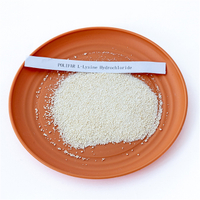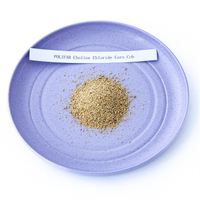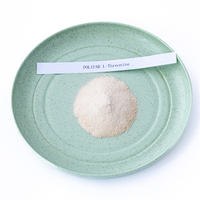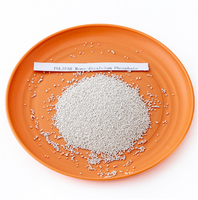Views: 7 Author: Site Editor Publish Time: 2019-08-31 Origin: Site








As an important part of animal feed, vitamin supplements are getting more and more attention. However, vitamin feed additives are very diverse, which makes many people feel helpless and helpless, and can not correctly understand vitamin feed. This means that they are prone to errors when they are used, with serious consequences. This article will explain the various vitamin feed additives.
This article contains the following:
Vitamin types for vitamin feed
Characteristics of vitamin feed additives
Conclusion
Vitamins that can be used for vitamin feed are classified into A, D, E, B1, B2, B6, B12, C, folic acid, niacin, pantothenic acid, biotin, and the like.、
Water-soluble vitamins include B vitamins and vitamin C, and the active ingredient content is often expressed as a percentage. In poultry vitamin feeds, the water-soluble vitamin content is expressed in mg/kg (vitamin B12 content units can be expressed in μg/kg).
Among poultry vitamin feed additives, thiamine hydrochloride and thiamine nitrate are commonly used. Generally, the content of thiamine hydrochloride or thiamine nitrate is 96% to 98%, and it is also diluted to 5%. In the actual production process, the amount of vitamin B1 added to the broiler feed is about 2.0~3.0mg/kg, the breeder is 1.5~3.0mg/kg, and the laying hen is 1.5~2.9mg/kg.
Also known as riboflavin, the main commercial form is riboflavin and its esters, which are yellow to orange-yellow crystalline powders. The commercial vitamin B2 additive has 96%, 80%, 55% and 50% riboflavin content. In the actual production process, the vitamin B2 added to the broiler vitamin feed is about 6~8mg/kg, the breeder is 6.5~8.5mg/kg, and the laying hen is 4~6mg/kg.
There are two forms of niacin and niacinamide, white or yellowish crystalline powder. The active ingredient content of the commercial niacin additive is 98.0%~99.5%. Nicotinic acid and pantothenic acid react easily and affect activity, so the two are not in direct contact. In actual production, the amount of niacin added to the broiler vitamin feed is 30~50mg/kg, the laying hen is 20~40mg/kg, and the breeder is 30~40mg/kg.
The commercial additive form is pyridoxine hydrochloride. In the actual production process, the amount of vitamin B6 added to the broiler feed is about 4~7mg/kg, and the vitamin feed of the breeder and laying hen is added to 3~5mg/kg.
It is cyanocobalamin or cobalamin, a dark red crystalline powder. The main commercial forms are cyanocobalamin, hydroxycobaltamine, etc. As feed additives, there are 0.2%, 05%, 1% and other dosage forms. In the actual production process, the amount of vitamin B12 added to the broiler feed is 0.003mg/kg. The amount of laying hens was 0.004 mg/kg, which was 0.009 mg/kg.
Also known as folic acid, the appearance is yellow or orange-yellow crystalline powder, acid, alkali, oxidant and reducing agent have a destructive effect on folic acid. The active ingredient of the folic acid product is more than 98%, and the active content of the folic acid additive is 1%, 3% and 4%. In the actual production process, the amount of folic acid added to the broiler vitamin feed is about 1.0~1.5mg/kg, the laying hen is 0.6~1.5mg/kg, and the breeder is 1.0~1.5mg/kg.
Also known as ascorbic acid, white or yellow-white crystalline powder. Commercial vitamin C additives are in the form of ascorbic acid, sodium ascorbate, calcium ascorbate, ascorbyl palmitate and ascorbic acid coated, in the form of 100% crystalline, 50% lipid coated products and 97.5% ethylcellulose coating. , and 25%, 50% and other dosage forms. Vitamin C can be synthesized in poultry, and it is generally not lacking. However, under stress conditions, it should be added in the amount of 100~300mg/kg in the vitamin feed.
The commercial form of biotin added to poultry vitamin feed is D-biotin, and the pure product contains more than 98% biotin after drying, and the active ingredient content of the commercial form is 1% and 2%. In the actual production process, the biotin addition amount in the broiler feed is about 0.08~0.15mg/kg, the laying hen is 0.15~0.20mg/kg, and the breeder is 0.10~0.20mg/kg.
Free pantothenic acid is unstable and hygroscopic, so in the actual production process, its calcium salt is often used. The commercial preparation is D-calcium pantothenate or DL-calcium pantothenate, and its active ingredient is 100% and 50%. The purity of D-calcium pantothenate is 98%, and it is also diluted to 66%, 50%. In production, the amount of pantothenic acid in the broiler feed is about 15~20mg/kg, the laying hen is 5~15mg/kg, and the breeder is 12~15mg/kg.
Fat-soluble vitamins include vitamins A, D, E, and K. In poultry vitamin feeds, vitamins A, D, E, and K are expressed in IU/kg (International Units/kg), and vitamin K levels are expressed in mg/kg.
Among the vitamin A additives sold in the market, vitamin A is esterified and then added with an appropriate amount of antioxidants and microencapsulated products, mainly vitamin A acetate, vitamin A palmitate and vitamin A propionate. The product specifications of common vitamin A additives are 300,000, 400,000 and 500,000 IU/g. The amount of vitamin A added in poultry feed is generally 1500~5000 IU/kg.
The product vitamin D is a white powder and is a coated product. There are mainly three forms of vitamin D2, D3 dry powder, and vitamin D3 microparticles. Common vitamin D additive product specifications are 200,000, 300,000, 400,000, 500,000 IU/g. In the actual production process, the amount of feed added is about 200-500 IU/kg for laying hens and hens, and 200-300 IU/kg for broilers.
A commercial form of vitamin E is used in poultry feed, mainly a DL-α-tocopherol acetate oil, a powder prepared after the proper addition of the adsorbent. The vitamin E in common vitamin E additives is 50% or 25% pure, and its product specifications are 300,000, 400,000, 500,000 IU/g. In the actual production process, the amount of vitamin E added to the broiler feed is about 20~40IU/kg, the laying hen is 10~30IU/kg, and the breeder is 25~40IU/kg. When the diet contains vitamin E100mg/kg, it can improve the immune function of the body. At 200IU/kg, it can improve the anti-stress ability and prolong the quality of the meat.
Among the vitamin feed additives, vitamin K3 derivatives are commonly used, and the active ingredient is menaquinone. There are three main forms, sodium bisulfite menadione (MSB) microcapsules, containing 50% active ingredient, sodium hydrogen sulfite. Menadione composition (MSBC), crystalline powder, containing 25% active ingredient, 50% active ingredient of dimethylpyrimidine sulfite (MPB). In actual production, the amount of vitamin K3 added to the broiler feed is about 2~3mg/kg, the laying hen is 1~2mg/kg, and the breeder is 2mg/kg. ,
The above is the full content of the vitamin additives that can be used for vitamin feeds. It takes a lot of effort to distinguish so many types. But you can choose to follow the situation you are facing, step by step.






